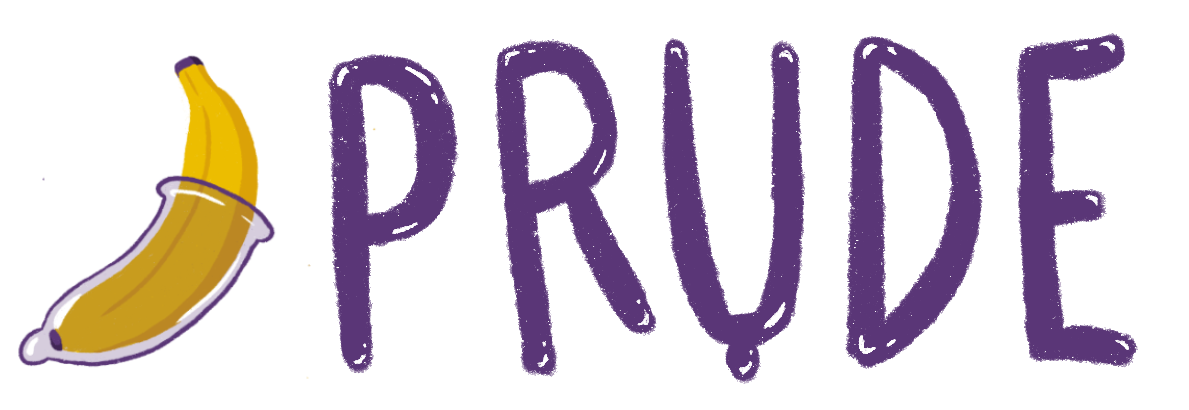Share This Article
The writer, actor and artist talks to PRUDE about their debut novel and the importance of going against the grain in the publishing industry.
“When did you know you were dead?” is the harrowing line with which Lauren John Joseph begins their debut novel, immediately flipping the trope of the queer character that dies at the end on its spine. And as the artist, actor and now author makes clear, they are well-versed in subverting expectations.
At Certain Points We Touch is a bold, raunchy, and unapologetically queer romance novel, already listed as the Book of 2022 by Esquire, Stylist and Foyles less than a month after its release. And the author is hoping to make a widespread impact with its success.
“Representation is so important. If you can’t see it, you can’t be it,” says Joseph, the confident and expressive creative who refers to themselves online as a “them fatale”. Dressed in a green turtle neck and grinning in a bold shade of red lipstick, they certainly are not afraid to interrogate the nuances of queerness: “I think it’s necessary to have representation of very rounded and somewhat critical queer world too,” they say. “Most of the characters in this book are complicated and not all of them are darlings.” The book contains plotlines that shed light on the past that white queer people have with racism: “I wasn’t trying to romanticise or make heroes out of characters that were complicated.”
Nor are the parallels between the protagonist and the author themselves hidden. Both are trans writers, grappling their way through the process of grief. And having experienced the book industry first-hand, Joseph is well aware of the difficulties of getting a foot in the door with works that go against the grain. “Publishing is very conservative,” they tell me. “But when I showed it to people, nobody ever said ‘this is garbage why don’t you just stick to acting?’”
“You can be as talented as you want, but until the marketing departments decide they won’t lose money, it’s not going to happen.”
The author speaks candidly about the close friend and sometime love interest they lost, an experience that spurred them on to write the book. “I cried all the way through writing it and through proofing it and once or twice during recording the audiobook,” they say. “But now it’s done and I feel like I’ve made my peace with it.”
“Now the book is like my best friend, in a way,” they add.
Joseph is a proud Scouser, born in Liverpool to a lineage of “working class intellectuals”: their grandfather was a dog walker, mother was a single mother of eight, and they were educated in the US before moving back to the UK. “People assume I’m from a wealthy background, I guess because of the way I present myself,” chuckles Joseph, tucking their long brown curls, adorned with a leopard print headband, behind a large gold statement earring. “Or, you know, because it’s not typical of this industry.”
They speak with nostalgia about the way their Scouse heritage comes out in their writing: “My nan and my mother were really amazing storytellers. They remember the most poetic little details about people that are so rich,” they say. “And I like to think I write like a Scouser”– Joseph beams with pride.
As per their upbringing, Joseph is passionate about relaying every detail. The novel does not shy away from either mundane moments or empassioned, lustful sex scenes: “It was important to write about the sex.” explains Joseph. “I don’t think I’ve ever really read a character like this in terms of their sexuality, in that they’re sort of femme top”. They add, with an amused smile, “I’ve heard that being called ‘blouses’, which is a brilliant bit of lingo”.
Growing up, Joseph was confident in their identity from an early age (“I never really had an ‘aha’ moment”.) Nowadays, they are not particularly taken with sharing themselves online: “I think social media is ludicrous! It’s like: endless lip syncing, some Shania Twain song is suddenly trending from ten years ago and people are desperately trying to cram that into their marketing for their handmade vegan soap?”
But the author does acknowledge the usefulness of the internet for queer kids growing up, who are able to find a community.
They speak passionately when it comes to the way literature offers a unique lens to queer and trans youth: “The written word has a longer history of queer people so they’ve had time to develop in more nuanced way,” says Joseph. They don’t feel the need to didactically point out the character’s specific identity or preferred pronouns in the novel: “The groundwork has been done by so many trans memoirs or exploitative movies, and even by this weird cultural backlash now from people who don’t support non-binary pronouns. It means I don’t have to explain how it all works anymore,” Joseph says.
Refusing to be pigeonholed, Joseph is hoping to spread the message of the book beyond queer circles. When asked what they hope people get out of the book, Joseph replies, “I hope that if you weren’t queer or trans when you pick this book up, that you are afterwards!”– they let out a shriek of laughter. But then, with more gravity: “But if that’s not possible, I hope that the next time they’re thinking ‘what should I read?’, they don’t just pick up a book that reflects their own experience. Because, when it comes down to it, we all are kind of the same on a human level. We have different experiences and different levels of privilege, but we all experience love and loss.”
At Certain Points We Touch is available to buy at all good bookstores
Image Credit: Ella Williams, Studio Prokopiou
Enjoyed this article? Read more here: ‘Being non-binary is brilliant. No-one is saying that enough’ – navigating sexuality with Ben Pechey



